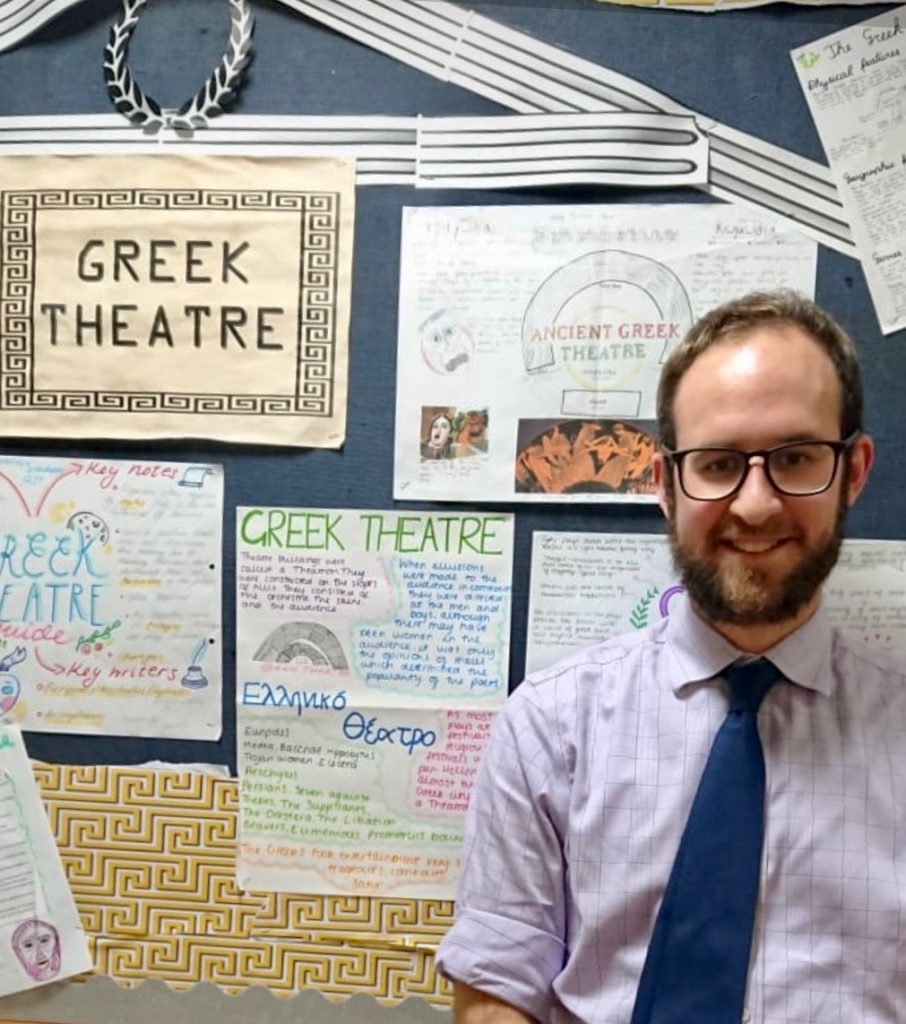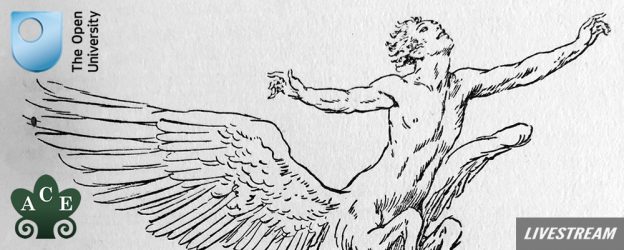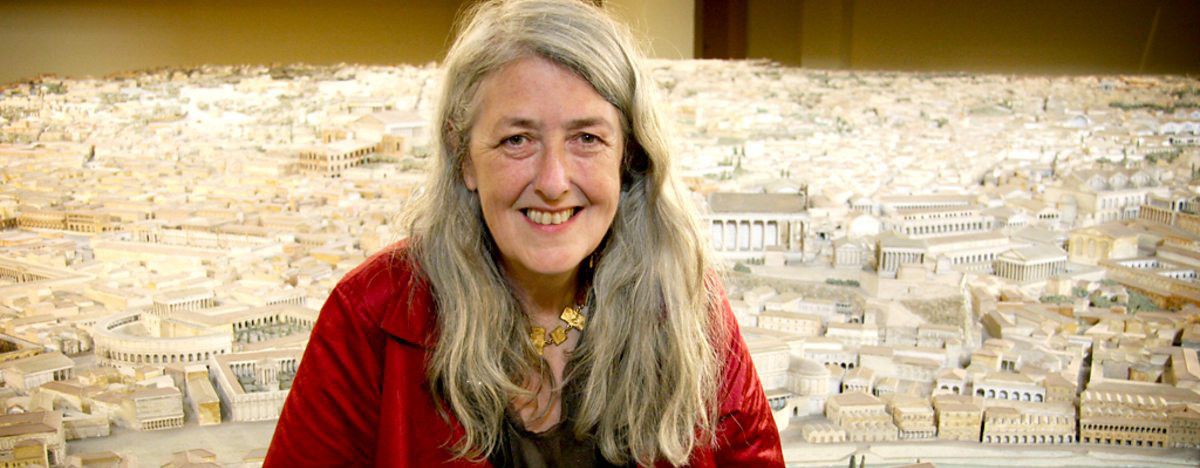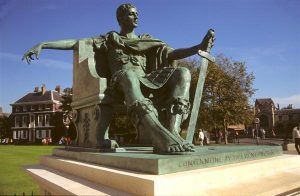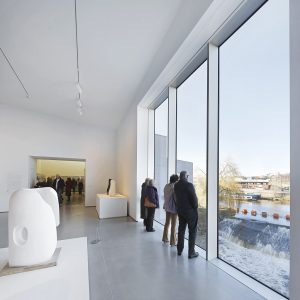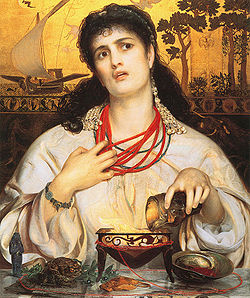by Kim Pratt (OU Classical Studies PhD student)
In September 2022 I presented a paper at a Conference on ‘Monsters’ at Reading University, held jointly by Limina Journal and ARC Centre for the History of Emotions at UWA (University of Western Australia) and the Classics Department at the University of Reading, UK. This went well and I was subsequently invited to submit it for a special Conference edition of the Limina Journal which was both unexpected and very exciting. I had based my paper on Chapter One of my thesis, ‘Monsters as the Other: A “Defence” of Polyphemos from Homer’s Odyssey to Mary Shelley’s Frankenstein’. This chapter covers Homer’s Odyssey and challenges the supposed binaries between the ‘monster’ Polyphemos and the ‘hero’ Odysseus. To submit the paper for publishing some revisions needed to be made including an unexpected and tedious exercise of changing everything to the required Chicago referencing style. This style was unfamiliar to me and took a little while to get used to.
One of my supervisors, Peg Katritzky suggested this would be a good time to choose an author name and to register for an ORCID (Open Researcher and Contributor ID) as they can both help in the attribution of work. We decided it would be a good idea to include my maiden name (Emmerson), as this would help to distinguish it from other Kim Pratts. So, I became Kim Emmerson Pratt and duly sent off my article in October 2022. At the beginning of December my article was sent back asking for some revisions which, as I told my supervisors was ‘a little deflating to say the least’. I had thought it would just go straight to peer review, the thought of which was already nerve-racking, and some of the editors’ comments seemed rather abrupt and harsh at first. Luckily, my supervisors reassured me it was all quite normal and that the editor was just making sure I had an article more geared to the requirements of the special edition before being submitted for peer review. Indeed, when I asked the editor for clarification on some of the revisions, she couldn’t have been more helpful and friendly, which is how our communication continued throughout the whole publishing process. At the beginning of May I was told my article had been accepted on condition of minor changes based on the reports of two reviewers. When I read the reports, they could not have been more different. While Reviewer One was obviously not a fan, Reviewer Two was very much in favour and luckily the editors agreed with Reviewer Two’s suggestions. Having received good feedback from both Reviewer Two and the editors it was much easier to deal with the very negative comments from Reviewer One and this time I didn’t feel at all disheartened.
The journal had also decided to incorporate a creative writing section on the same theme of monsters. As I have been interested in creative writing since I was a little girl, I decided to submit a poem on the same subject entitled ‘Polyphemos’ Lament’ which I sent off in January 2023. This too was accepted, which was amazing, and I was not asked to revise anything on this until the copyediting stage in September. They just suggested I add an introductory couple of sentences and link it with my article. This was so exciting as I had almost given up of thinking I might one day have a creative piece published and certainly didn’t think it would be while I was still working away on my academic work.
I believe creative writing helps me to see connections and avenues of research where I may not otherwise have done so. When I read the Odyssey I felt sorry for Polyphemos and couldn’t stand Odysseus – I also felt the same about the Creature and Victor in Frankenstein and saw a connection between the two works. This idea grew as I read other works involving Polyphemos such as Theocritus’ Idylls 6 and 11 and Ovid’s Metamorphoses. I feel that it was my creative side that immediately rearranged the tales of the Cyclops to make one linear story rather than viewing them in chronological order of authorship. Seen that way Polyphemos’ experience is very similar to that of Shelley’s Creature – both begin life as benevolent beings who become malevolent by the treatment and rejection they receive from others because of their monstrous appearance. If I had been writing a fictional piece about Mary Shelley’s writing of Frankenstein, I could just have said she read the ancient works which inspired her in her writing. Of course this cannot happen in academic writing. Although these limitations can be frustrating it led me to search for evidence of a link between the two characters – and I found one! Hidden away in correspondence between Leigh Hunt and Mary Shelley was a little comment in parenthesis in Mary’s letter to Hunt saying, ‘I have written a defence in favour of Polypheme, have I not?’ This became the basis for my thesis and in time my academic work on the ancient works enabled me to write my poem.
On 3 January 2024, I was finally informed that the journal had gone live. The process was long and tedious at times, but it was certainly worth it – I am now a published author in both academic and creative writing! It was such an exciting experience which has really boosted my confidence and gone a little way to dispel that imposter syndrome that constantly lurks at the back of my mind. The numerous revisions and condensing a whole overlong chapter into a shorter article have also helped with the writing of my thesis by focussing on the important details. Also, having one poem published makes me feel there is no reason why it should be my last and my creative writing career may have only just begun!
Please click here for Kim’s profile page, and here for the special edition of Limina.
